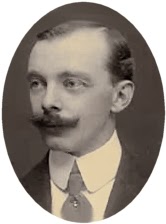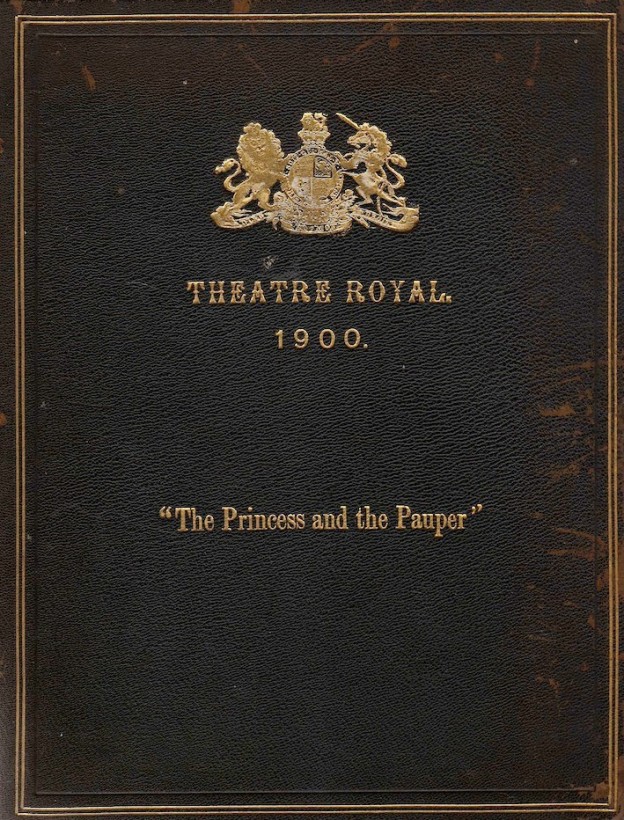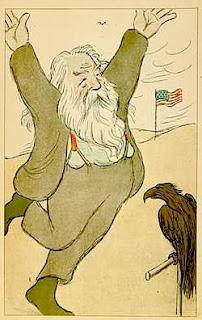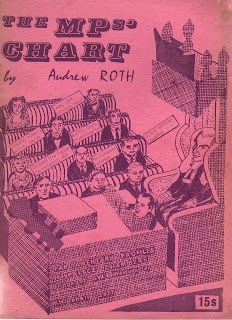
Sent in by loyal jotperson RMH. It is worth noting that despite his suggestion HG is not totally forgotten and, in fact, is quite saleable. He was also, at one time, collected by Teflon man Kenneth Baker and other lesser lights...
Here’s a puzzle. Look at the cover of this oddity recovered from a job lot two years ago. Open the volume and seemingly, what we have is the printed programme notes of a comic drama performed at ‘The Theatre Royal’, somewhere or other, bound in with a carbon copy of the script. Looking more closely we find that the venue is Government House and the reviews, which are from Canadian newspapers mainly from the Ottawa district, are far too facetious to have been genuine. Further research reveals that, despite the highly professional quality of the programme, everything suggests that the ‘extravaganza’ is purely an amateur production. A little more delving tells us that most of the players are members of the same aristocratic family—in fact sons and daughters of the fourth Earl of Minto, Governor General of Canada, then a British colony.
We have already noted that the playwright was ‘Col. D Streamer’ and the small print reveals that this supposed army officer (who also directed the play) was the author of Ruthless Rhymes for Heartless Homes, which had appeared a year before the play was performed. By now, most fans of ‘sick’ humour will have twigged that Col. D Streamer was the pseudonym of one of Britain’s most admired comic poets--a man worthy to stand by Thomas Hood and Edward Lear-- much darker than the former and just as inventive as the latter. We are talking, of course, about Harry Graham, then just 26, who was aide de camp to Lord Minto and a close friend of the Minto family (pic below).

The Governor General and Graham, who were both old Etonians, got on famously, but it is not known what his employer thought of such a ‘ruthless rhyme’ as the following:
Billy, in one of his nice new sashes
Fell in the fire and was burnt to ashes
Now, although the room grows chilly
I haven’t the heart to poke poor Billy
However, it is likely that Minto took the play’s rather disparaging references to Canada, and Ottawa in particular, in good heart. In his turn Graham had the script ( which was probably his own )and accompanying programme notes specially bound and presented to Lady Minto at Christmas, 1900, possibly just after the play hit the Theatre Royal. Incidentally, this grandiose- sounding venue was probably just a modest lecture hall within Government House, specially adapted for this one performance by family and friends.
In the following year Graham departed for the Boer War. He returned unscathed in 1902 for a second term as Lord Minto’s right hand man. Before his death in 1936 he went on to publish more comic verse and compose many more comic dramas, most of which, like The Princess and the Pauper, are now totally forgotten.





